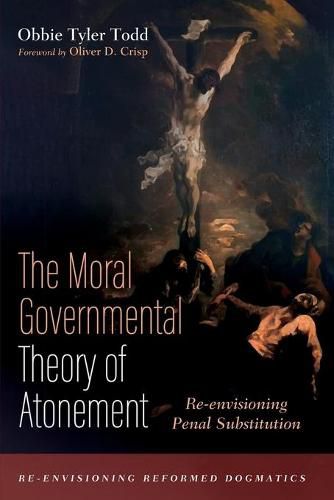Readings Newsletter
Become a Readings Member to make your shopping experience even easier.
Sign in or sign up for free!
You’re not far away from qualifying for FREE standard shipping within Australia
You’ve qualified for FREE standard shipping within Australia
The cart is loading…






This title is printed to order. This book may have been self-published. If so, we cannot guarantee the quality of the content. In the main most books will have gone through the editing process however some may not. We therefore suggest that you be aware of this before ordering this book. If in doubt check either the author or publisher’s details as we are unable to accept any returns unless they are faulty. Please contact us if you have any questions.
The American moral governmental theory of the atonement (MGT) was arguably the most contextualized doctrine of atonement in the history of the Protestant tradition. Hewn from the theology of Jonathan Edwards, and engineered to address the theological, political, philosophical, moral, and even economic milieu in the early republic, MGT became the doctrinal centerpiece of the first indigenous American school of Calvinism. As a result, it stands as a kind of theological time capsule to the people and principles that shaped the tumultuous period between the first Great Awakening and the Civil War when it flourished in America. For over a century in the Anglo-American world, the doctrine of atonement was under heavy construction in the broader Reformed community. By endowing new meaning to old theological terms like imputation, substitution, justice, punishment, and even atonement, MGT represents a theological watermark of sorts in Reformed dogmatics, defining its limits, testing its boundaries, and demanding a level of precision from today’s theologians. This book offers a contextualization, distillation, and conversation with this Edwardsean doctrine of atonement.
$9.00 standard shipping within Australia
FREE standard shipping within Australia for orders over $100.00
Express & International shipping calculated at checkout
This title is printed to order. This book may have been self-published. If so, we cannot guarantee the quality of the content. In the main most books will have gone through the editing process however some may not. We therefore suggest that you be aware of this before ordering this book. If in doubt check either the author or publisher’s details as we are unable to accept any returns unless they are faulty. Please contact us if you have any questions.
The American moral governmental theory of the atonement (MGT) was arguably the most contextualized doctrine of atonement in the history of the Protestant tradition. Hewn from the theology of Jonathan Edwards, and engineered to address the theological, political, philosophical, moral, and even economic milieu in the early republic, MGT became the doctrinal centerpiece of the first indigenous American school of Calvinism. As a result, it stands as a kind of theological time capsule to the people and principles that shaped the tumultuous period between the first Great Awakening and the Civil War when it flourished in America. For over a century in the Anglo-American world, the doctrine of atonement was under heavy construction in the broader Reformed community. By endowing new meaning to old theological terms like imputation, substitution, justice, punishment, and even atonement, MGT represents a theological watermark of sorts in Reformed dogmatics, defining its limits, testing its boundaries, and demanding a level of precision from today’s theologians. This book offers a contextualization, distillation, and conversation with this Edwardsean doctrine of atonement.